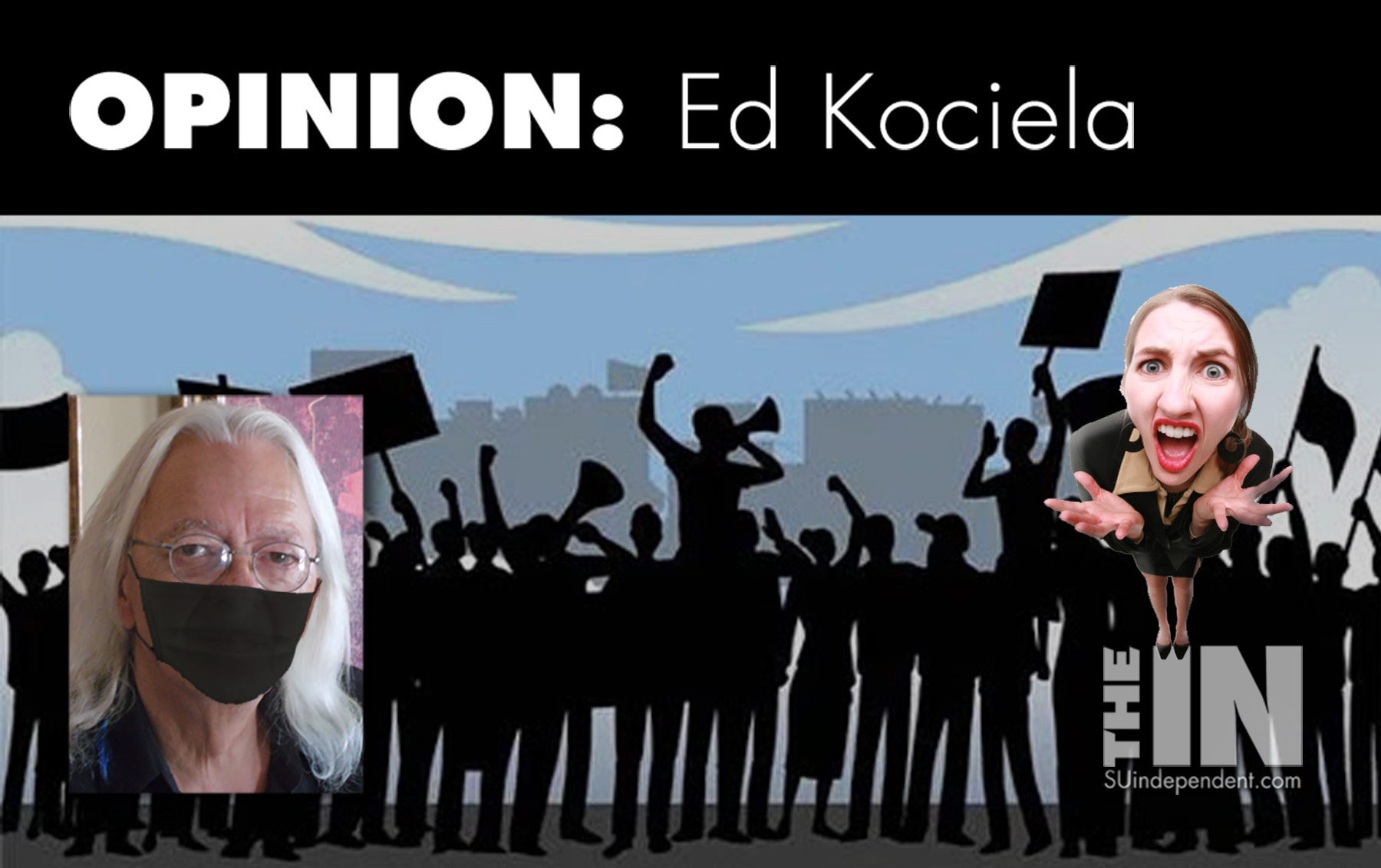
There Is Hope That Black Martyrs Did Not Die In Vain
– By Ed Kociela –
Finally, grudgingly, it appears that Utah is getting it, at least to a certain extent.
It was announced Friday that the Utah Board of Higher Education approved a name change for Dixie State University. The approval came shortly after the DSU Board of Trustees had agreed that it was time to change the school’s name. The final hurdle will be approval by the Utah Legislature.
It gives me hope that the black martyrs of our time – from Rayshard Brooks and Breonna Taylor to Michael Brown and George Floyd and so many others – have not died in vain.
The nation itself is reflecting a newfound sensitivity, it seems, to social, cultural, and ethnic issues. That’s why the names of the Washington Redskins professional football team and the Cleveland Indians professional baseball team are changing. Those are small, but not insignificant baby steps that have had a trickle-down effect even in Utah, where communities and regions are hoping to change the names of various points of interest that were seen as demeaning and why Cedar High School dropped its longtime Redman mascot. I would bet a lot of money that more changes are on the way, at both the national and local level.
In each instance, it has been a long, arduous struggle. The latest efforts in changing the university name included an online petition, a statement of position from the DSU faculty senate, and the NAACP. It was a challenge as DSU slowly removed symbology from the Confederacy from its campus. The statue of a southern soldier on his horse, the nickname Rebels, the Stars and Bars stripped away at glacial speed that cut a chasm in the community as diehards clung desperately to a faux legacy that the region earned its nickname because it was supposed to fill the coffers by Southern Utah settlers taking up lost production of cotton during the Civil War.
In the end, however, it came down to one in four DSU graduates revealing that the name of the school had a negative impact on their obtaining jobs elsewhere or entering grad school. Everybody, it seemed, kept asking them what this Dixie thing was all about instead of the quality of their education.
Make no mistake, this Dixie thing was all about was racism.
Among the settlers sent south to begin a cotton enterprise were former slave owners from the Deep South. Historians have well documented how those settlers closely followed the battles of the Civil War, celebrating battles won by the Confederacy, and how two in particular – I will not mention their names because I will not honor hatred – would hold court and regale the others with stories of how they raped the women on their plantation and killed the disobedient men. With a history like that, it is no wonder that the legacy strayed so far from the truth. And, with a culture that embraced that legacy with a nod and a wink, it is no wonder why only 1.6 percent of the Utah population is black, far below the national average of 13.4. But, be honest, if you were a person of color, would you be eager to move to a community that, until the 1990s, put on minstrel shows with the most distinguished local educators and politicians singing and dancing in blackface?
This is not one of those things you can just shrug off by saying, “Well, my family never owned slaves,” or “Those were different times.” We live in these times and guess what, we have experienced far-flung racism and the willful killing of people of color. For somebody to say those who abused minority ethnicities either verbally, physically, or emotionally because they didn’t know any better is a cop-out and you don’t get a pass. Not this time, not ever. And if the reference to Dixie doesn’t bother you then shame on you, because it should. There was nothing romantic, heroic, or genteel about the South and plantation life. It wasn’t about Scarlett and Melody and Rhett Butler, it was about vicious overseers and their lethal whips and torture devices; it was about greed; it was about becoming power-mad and there is nothing idyllic about any of that. The mere mention of Dixie stirs all of those turbid memories totally lacking grace and humanity.
The Utah Board of Higher Education isn’t the only group that has had enough. Intermountain Healthcare, in July, announced that it is changing the name of Dixie Regional Medical Center to Intermountain St. George Hospital.
Finally, there is a certain appropriateness in this announced change coming just days before Christmas, which is, after all, supposed to be about spreading peace on Earth and showering goodwill upon our sisters and brothers. What better time to embrace equality and freedom and unity?
It is a fact, of course, that Utah had nowhere the number of slaves as the South. One slave is one too many. But, the culture, particularly that of Southern Utah, was cast by a number of transplanted Southerners who brought their bigotry and hatred with them and forged it into the culture, which remains today.
And, just because you might not feel it, live it, experience it doesn’t mean it does not exist. Just be curious enough to peel back a couple of layers and you will see it.
There are a lot of people in this state who have never lived more than 100 miles from where they were born. What that means is they never experienced the greater world outside of the confines of their small reality and that is a shame.
But, we are now, more than ever, a global community where the people come in all shapes and sizes, colors, and beliefs.
It’s time we realize that.
And, what better way than to spread peace on Earth and blessed goodwill to all.
God knows we can use it now more than ever.
Viewpoints and perspectives expressed throughout The Independent are those of the individual contributors. They do not necessarily reflect those held by the staff of The Independent or our advertising sponsors. Your comments, rebuttals, and contributions are welcome in accordance with our Terms of Service. Please be respectful and abide by our Community Rules. If you have privacy concerns you can view our Privacy Policy here. Thank you!
Click here to submit an article, guest opinion piece, or a Letter to the Editor




